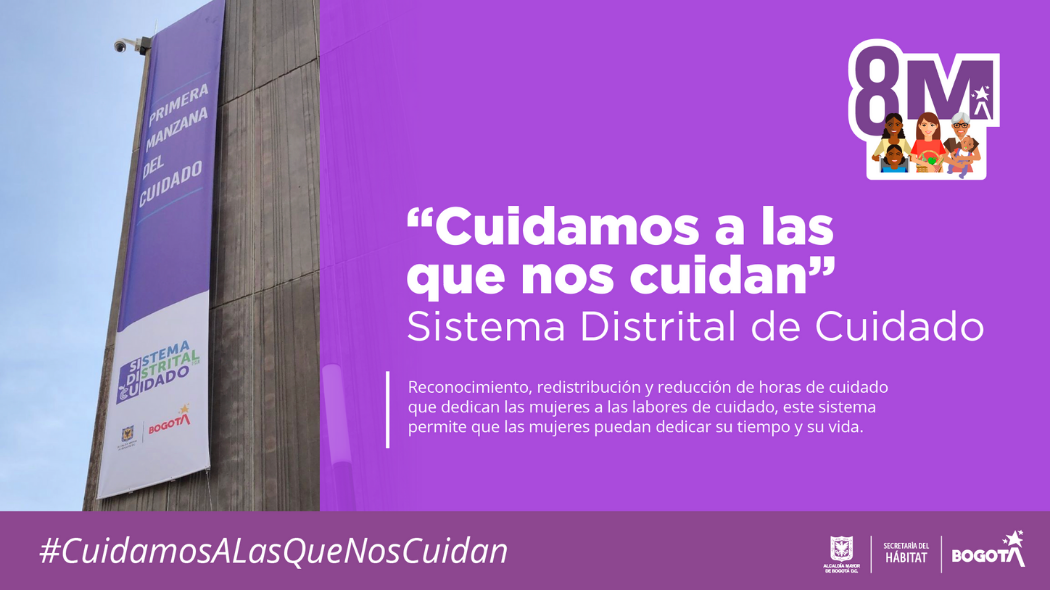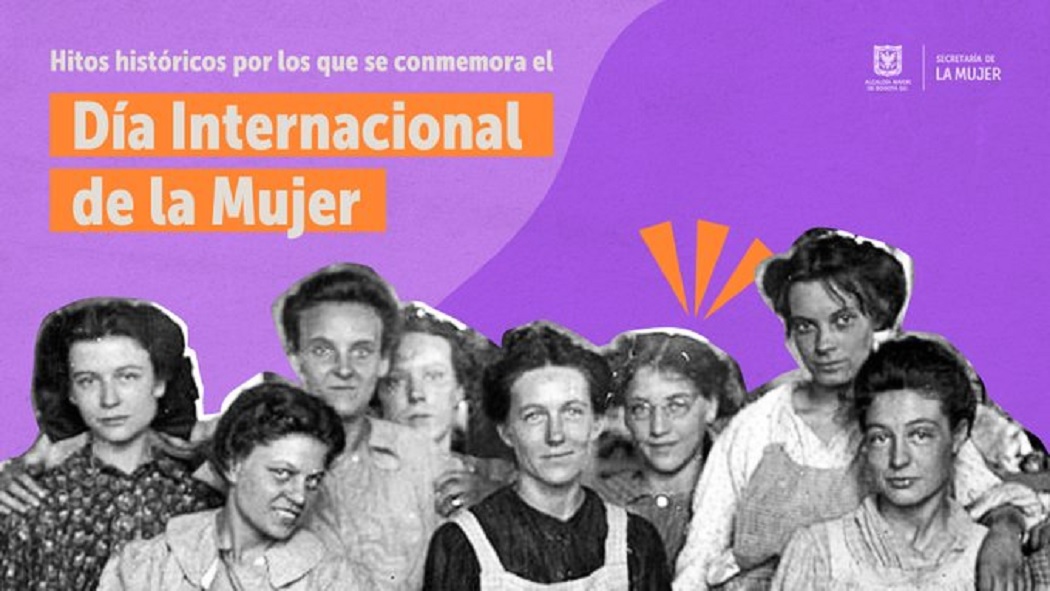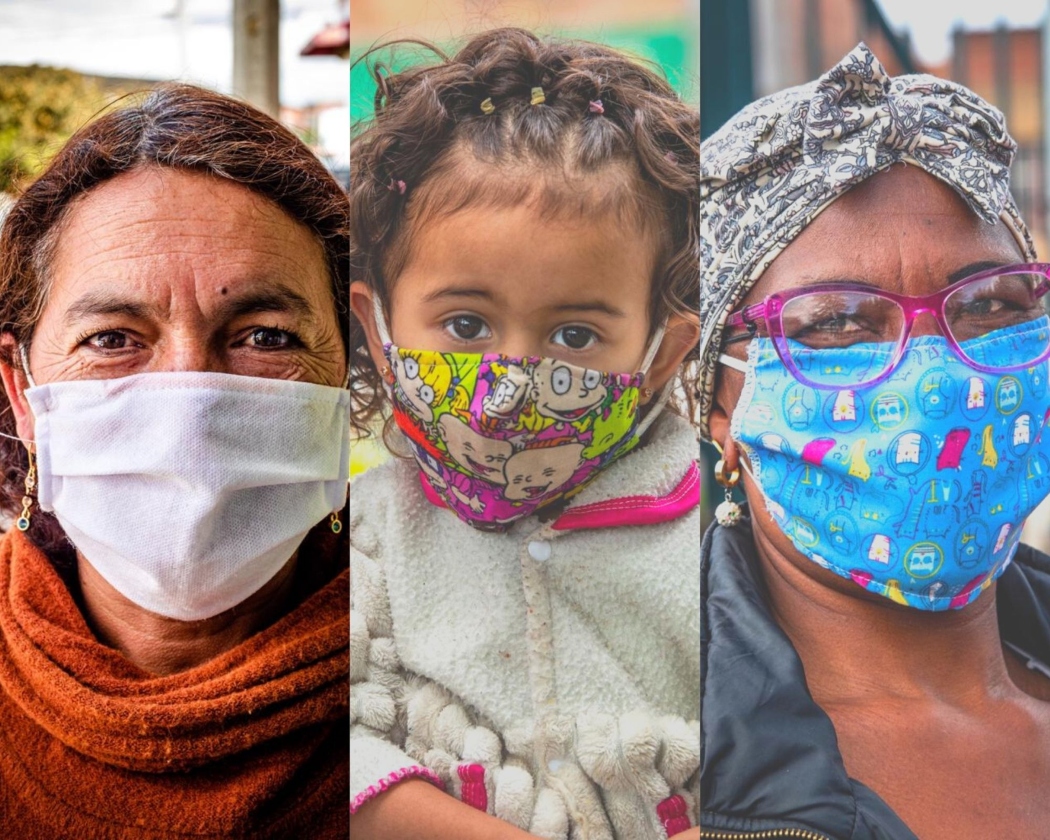Today, on International Women’s Day, Bogotá advances on the implementation of its Care System. This is a transformative social services venture initiated under the government of Mayor Claudia Lopez. The Care System will reduce, recognize and redistribute the disproportionate burden of care faced by women, with this policy the city advances towards gender equality.
On this relevant day, Bogotá will inaugurate its third block of care in the locality of San Cristobal and will introduce the first two mobile care units. These provide social services to those in need of care, while also offering recreational activities, training courses and accreditation opportunities for those who provide unpaid care. These two mobile units; one for urban and one for rural communities, are an innovative approach to deliver care services for families who are unable to access a block of care. By 2023, the goal is to open a total of nineteen blocks of care.
In addition to the care blocks, during this week the city will inaugurate the Escuela LideraPAR, a Justice House in the Ciudad Bolivar District and a report from the Observatory on Women and Gender Equality.
The Mayor of Bogotá, Claudia López, is implementing transformative strategies, these will be instrumental in order to address the structural and cultural barriers that have impeded women and girls to achieve gender equality.
Implementing a District Care System
A significant contributor to the higher poverty incidence of women in Bogotá—usually referred to as feminization of poverty—is the disproportionate burden of care faced by women due to the prevalence of traditional social norms that have attributed the role of unpaid care to them.
The pandemic has aggravated the burden of care inside the household. The closure of schools, the lockdown measures, and the lack of financial means to procure for paid domestic help, have increased in around 3 hours per week the burden of unpaid care work for women. This is particularly critical in poorer households, where women cannot afford to hire domestic help.
Under the coordination of the Secretary of Women, Bogotá launched in 2020 the District Care System to reduce, recognize and redistribute the disproportionate burden of care faced by women. This will be the first comprehensive Care System to be inaugurated in a Latin American city.
The District Care System is implementing a territorial strategy with ‘blocks of care’ designed to deliver care services in a way in which people do not need to walk long distances to access them, concentrating existing and new care services in safe environments and guarantee access for those who need them. The system also envisions the creation of Mobile Care Units, offering services to families in rural areas and for those who do not live close to a block of care.
The services that are being offered are delivered by the State, the private sector and the community sector, under a model of co-responsibility, in order to:
· Strengthen and expand the supply of care services for people with higher levels of functional dependency, including young children, disabled individuals and the elderly.
· Develop a strategy that values and gives new meaning to care work, implementing processes of empowerment for carers, providing rest and recreation services and training. 70% of women who provide unpaid care did not graduate from high school in Bogota. The system intends to free up the time of traditional care providers, mainly women, in order for them to receive accreditation, training in new skills, and have access to recreation activities.
· Implement a strategy of cultural transformation and pedagogical change to address the cultural belief that women are better at performing care-related tasks than men and also to promote the co-responsibility of care between men and women.
Gender mainstreaming in the City Development Plan
The City Development Plan has a cross-cutting gender approach in order to ensure that all public policies designed and implemented in the city, take gender considerations into account. Every city government entity is advised by the Secretary of Women on how to incorporate a cross-cutting gender approach and also on how to hire experts in gender issues to ensure that the programs and policies implemented promote gender equality and the effective enjoyment of women’s rights.
Addressing Domestic Violence
As in other places, the number of gender-based violence has increased during the pandemic. In order to address this, the city expanded its services to tackle the rise in gender violence. Mainly, we strengthened online and telephone channels to provide guidance counselling and legal and psychosocial assistance, aimed at preventing the violation of women’s rights, including sexual violence.
The Houses for Equal Opportunities are meeting places for women. Currently, we have 16 houses in the city, where we provide psychosocial orientation and legal advice, activities for empowerment and well-being and access to technological services.
The Purple Line is a 24/7, toll-free hotline in Bogota, for women in need of counselling and legal assistance, either in cases of gender-based violence, including domestic violence, or any other violation of their rights, for example guidance in sexual and reproductive health services. During lockdown, we tripled our capacity, increasing response effectiveness from 30% to 90%.
We launched an innovative strategy called "Safe Spaces" in alliance with the private sector. This strategy is being implemented in over 600 supermarkets, pharmacies, and gas stations throughout the city to prevent violence at home. Our aim is to offer an alternative to victims who are unable to call or chat during lockdown, because they were at home with the aggressor.
· If the woman needs to save her life, the manager will call the police, who in turn report the case to the the Secretary for Women for legal and psicological assistance.
· Or, if the woman needs information on how to receive attention in her case, the manager will provide basic information and take her name and phone number to report it to the Women's Secretariat.
Improving labor outcomes for women
According to the latest household survey estimates for the second quarter of 2020, in comparison to 2019, the number of women-led households increased to 43%, the labor participation of women decreased, women informality grew, and female unemployment more than doubled (26.3% and 28.7% for young women). Such results show that the crisis is affecting women and girls disproportionately, and that men in Bogotá have had better mechanisms to cope with the negative effects of the crisis.
To address this, the Secretary of Economic Development aims to focus on the design of training programs to improve the employability of women in Bogotá and to reduce their barriers to access and remain in work and to generate income. Bogotá aims to create at least 22.628 jobs for women and to train thousands more in gaining new skills and learning a foreign language (primarily English).
The city also created Jóvenes a la U program to increase access to higher education. In the first cohort, 64% of beneficiaries were women and 36% were men.
In addition, the Mayor of Bogotá issued the Decree 332 of 2020 as a strategy to reduce gender gaps in public procurement contracts. We now require a higher percentage of women in firms contracting with the city, particularly in those areas that have historically hired more men than women such as transportation and construction. We are also implementing a training program in gender equality for public servants.
Our commitment to achieve gender equality will continue to permeate every action we take during this administration. We are far from removing all the cultural and structural barriers that impede us to achieve gender equality; but we are convinced that every action counts towards empowering our girls and women and ensuring that their voices are heard and respected.







